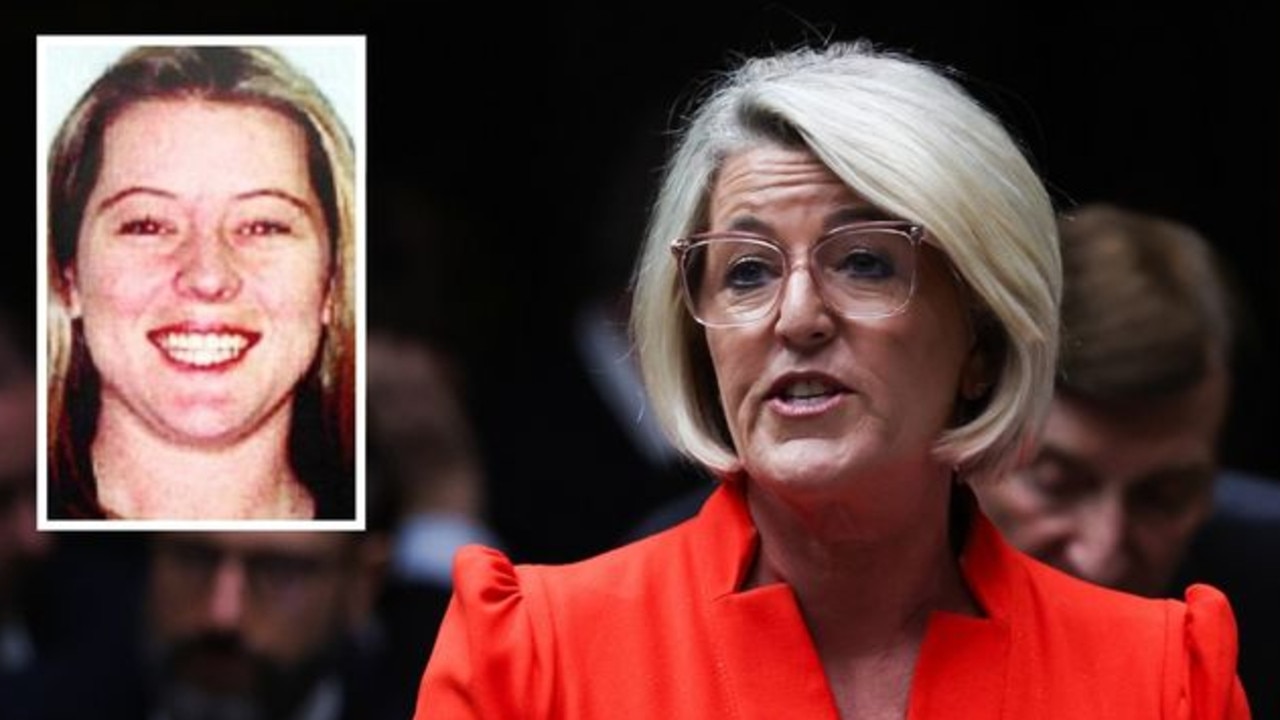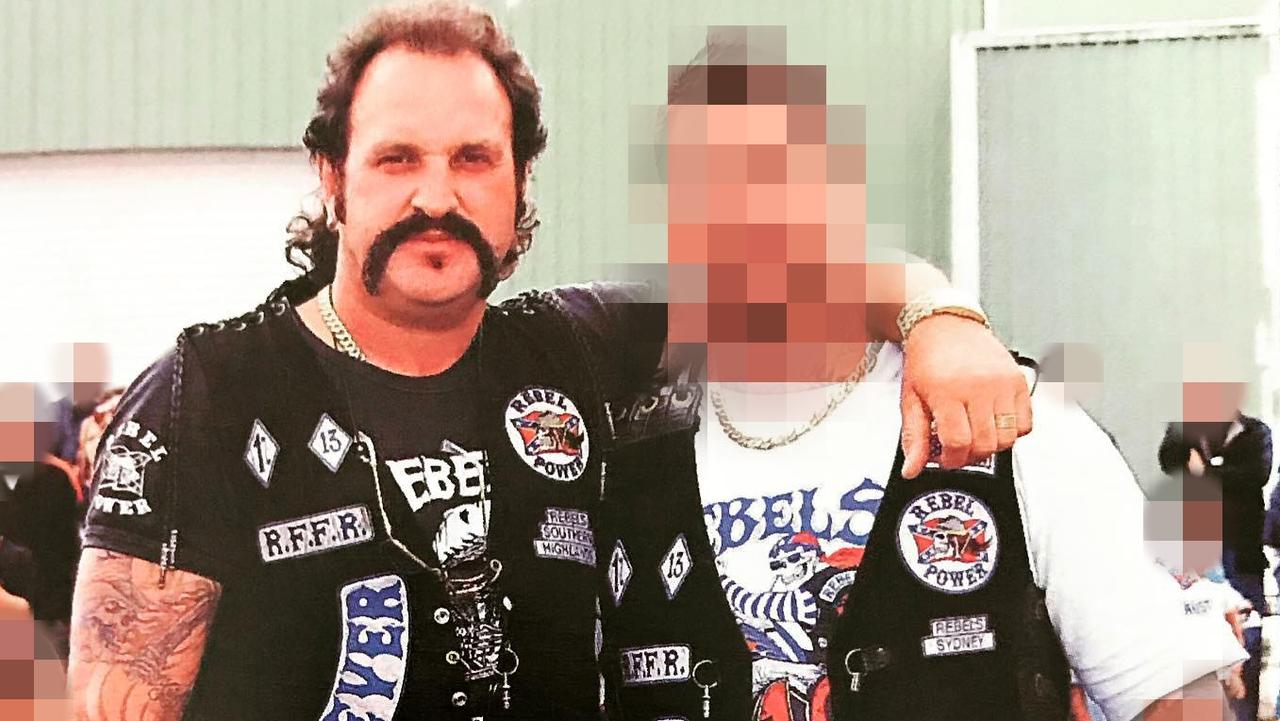‘Intense pain’: Bali bombings survivor relives horror
Dale Atkin was just metres away when the Sari Club bomb went off. Two decades on, he meets the team that helped him get his life back.
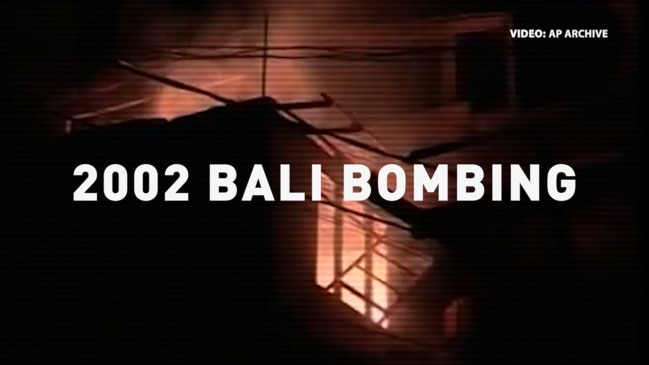
True Crime
Don't miss out on the headlines from True Crime. Followed categories will be added to My News.
It was a moment twenty years in the making.
Two decades after Bali bombings survivor Dale Atkin arrived at the Alfred hospital, he was reunited with the people who nursed him back to health.
Mr Atkin, then just 27, remembers the attack “like yesterday”.
It was meant to be a fun end-of-season footy trip, and he and his friend Travis Barton had flown in a day early.
They had been on the island for less than eight hours, when they found themselves at the Sari club on October 12 2002, unknowingly sitting just 5 metres from the second bomb.
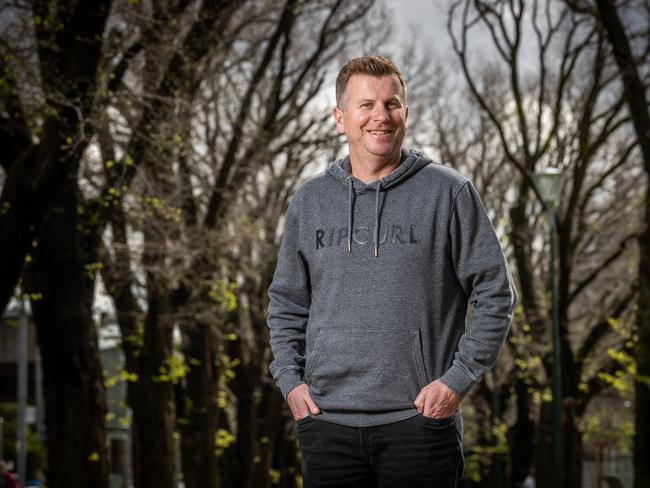
Mr Atkin said he can still picture the explosion, and climbing over the wall to escape.
“There were no flames, it was actually the heat,” he said.
“I remember my skin was melting and thinking ‘god that’s hot’.”
He said he and his friend, whose injuries were less severe, made it to the medical clinic where the “floor was just red with blood”.
He was eventually transported to a local hospital in a garbage truck.
“There were no drugs, there was no Panadol. It was just intense pain,” he said.
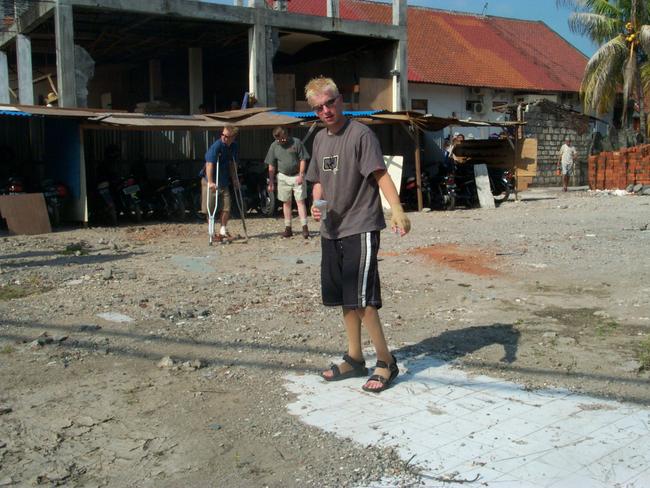
Mr Atkin had suffered severe burns to 43 per cent of his body, and was told his chance of survival was just 30 per cent.
But on October 7 2022, after an admittedly difficult recovery journey that he likened to a rollercoaster, he stood in a park opposite the Alfred Hospital, alive and with his family.
Yvonne Singer, a burns specialist who worked closely with him, said it was incredibly rewarding to see patients happy after meeting them at their lowest point.
“I had always wondered what had happened to Dale in the past 20 years,” she said.
“He always used to crack funny jokes with the most adverse times.
“It just really lightened the mood and I guess it’s the real Aussie spirit … to laugh in the face of adversity.”
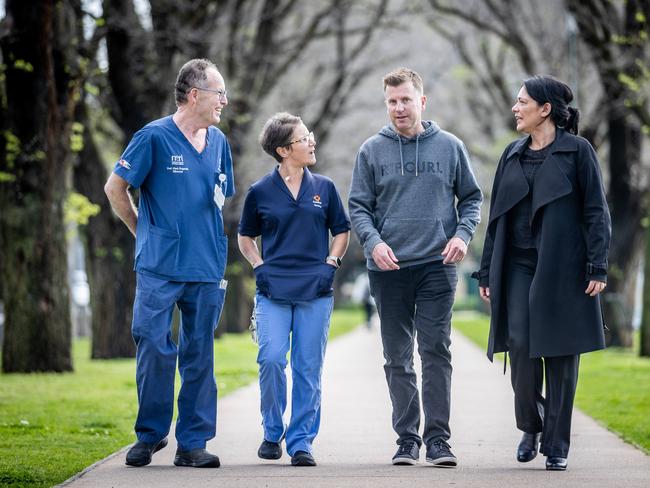
Hana Menezes was an intensive care nurse and said she had never forgotten Mr Atkin.
“Seeing patients later on, when they’ve really gotten back into life … it’s just this warm and fuzzy feeling that maybe you contributed a little bit to that,” she said.
Professor Mark Fitzgerald, who was the head of Alfred’s emergency department at the time, simply could not believe it had been 20 years.
Passer-bys could have mistaken the group in Melbourne’s Fawkner Park for old friends.
In many ways they were.
They hugged. They cried. But they also laughed – teasing their former patient about his old bleached blonde hair – as he caught them up on the past twenty years.
He is married to his wife of ten years, Katie Atkin, and has three kids.
They have a small farm in Victoria’s east, with everything from alpacas to chickens, and he has a job he enjoys in real estate at Ray White.
No one but Mr Atkin could ever truly understand what it meant to be in the park that day.
Survivors in the burns unit had not only suffered terrible physical injuries but were also coming to grips with the horrors they had seen, at times waking disoriented from nightmares and thinking they were still in Bali.
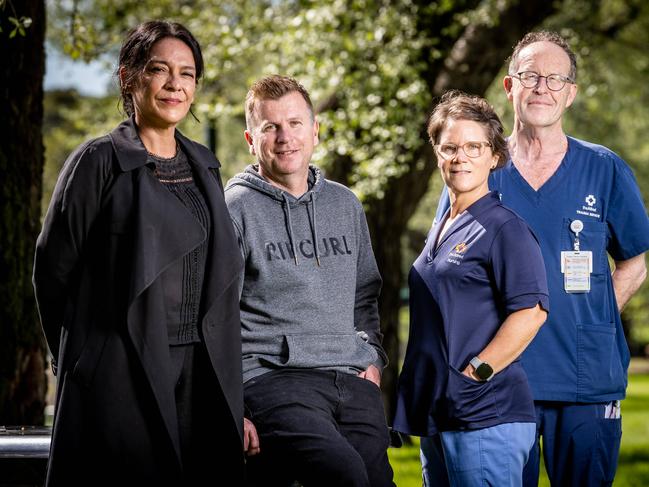
But when asked how he felt, Mr Atkin kept circling back to one word: “grateful”.
“I couldn’t thank them enough for what they did,” he said.
“They were a big part of my life for seven weeks.”
He also paid tribute to Lois and Alan Wood, who rushed to his aid in the aftermath of the attack in Bali.
“They were total strangers at the time, but chose to help me,” he said.
There were similar stories of altruism at the Alfred, where staff remember an influx of donations and one patient in the burns unit – who upon hearing multiple survivors would soon arrive — wanted to discharge themselves to free up their bed.
Prof Fitzgerald said “everyone wanted to help”.
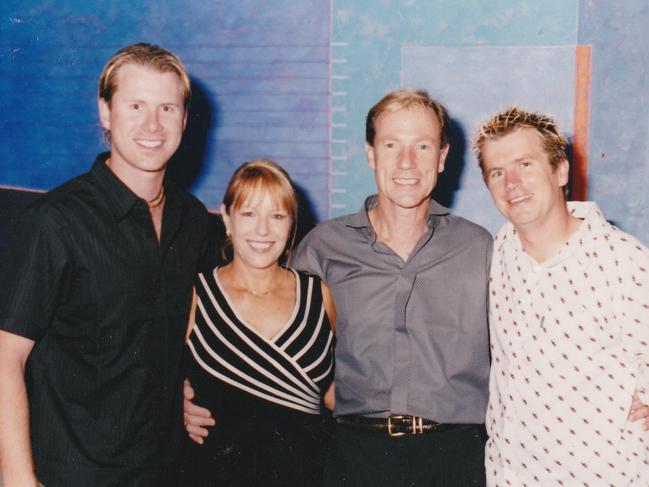
He remembered one man, who was severely injured just minutes before the first Bali victims were due to land from Darwin.
By the time he arrived at the Alfred, he was already gone.
When his devastated wife asked to see him, Prof Fitzgerald had to gently tell her the hospital needed to prepare the bay her husband had been in, for the Bali victims.
Instead of getting upset or angry, Prof Fitzgerald said she instead put her hand on his arm and told him to focus on the people he could still save.
As he prepares for the anniversary on Wednesday, Mr Atkin’s message is simple: reach out.
He said didn’t see a counsellor after he left hospital, and used “to relive that night, every day”.
“I thought that was normal,” he said.
He credited his wife, with encouraging him to get help for his PTSD, and encouraged others to do the same.
“It’s okay, not to be okay,” he said.
FOOTY COACH’S SPECIAL BOND
Seven people on Simon Quayle’s football team were killed in the 2002 Bali bombings – their lives snatched in an instant.
But it’s the lifelong friendships he made with Australian Federal Police officers Andy Thorp and Mark Laing that he wants to reflect on now.
The Kingsley Cats coach and his team had arrived in Kuta for a celebratory end-of-season trip five hours before a massive bomb was detonated in a car parked outside the Sari Club.
Quayle and 18 other members of the amateur football club from suburban Perth were among the joyful revellers packing out the nightclub when the explosion tore it apart.
A series of “sliding doors” moments that followed – beginning with Thorp and Quayle running into each other in the chaos at the local hospital – led to the bond between the two policemen and the coach who had endured such an unimaginable loss.
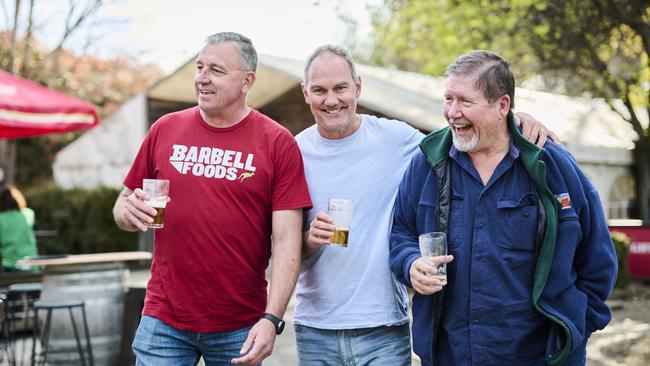
The trio, who reunited in Canberra late last month to watch the AFL Grand Final, met at the Bounty Hotel in Kuta where Laing and Thorp took witness statements from Quayle and the rest of his shell-shocked and injured team.
“Andy said, ‘We’re not going anywhere until we have drinks with these people’. I think that’s important in our context, because that’s where this started,” Laing said.
Quayle said he felt an immediate bond with the two officers because the care they showed him and his players meant he “didn’t have to lead any more for that little moment”.
Then 32, Quayle lost his close friend and assistant coach as well as several players who were aged just 18 or 19.
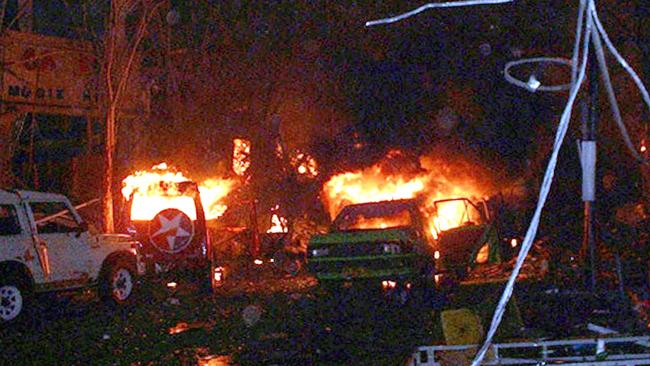
He might have “had absolutely no sense of time” after the bomb went off but his recall is so vivid it feels like it could have happened yesterday.
“All of a sudden, it was super dark. As dark as you can imagine,” he said.
“It went from super noisy, people everywhere, can’t move, to a place of complete silence.”
As he helped other survivors escape from the fiery wreckage of the decimated club, Quayle said it immediately became about how many white Kingsley shirts he could see in the darkness.
“Within moments, I’m talking milliseconds, it all became about who was there and who wasn’t,” he said.
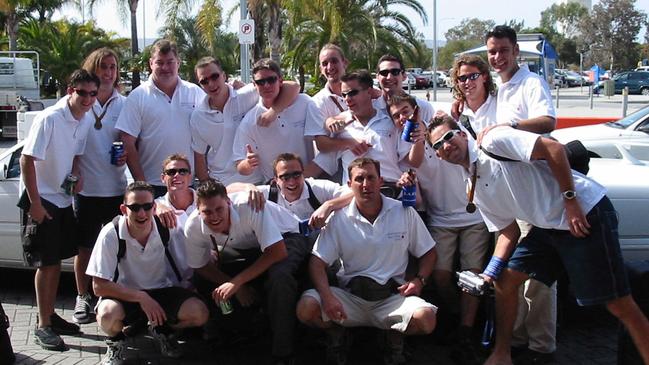
He and the surviving players stayed behind in Bali to help identify their missing friends’ bodies, with one old Nokia mobile phone between them the only point of contact with their families back in Perth.
Now retired, Thorp ran part of the first deployment to Bali in what became one of the most significant operations in AFP history.
“Nothing I’d ever dealt with was at this level,” he said.
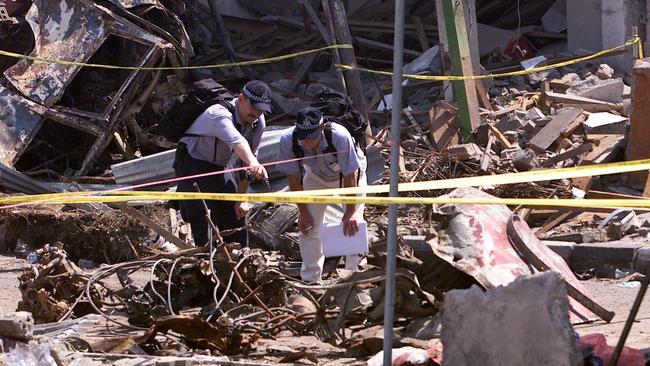
He and Laing praised the work of their Indonesian counterparts as together they chased the terrorists responsible for the bombings across the archipelago.
Thorp says the “biggest thing about being a detective” is the relationships formed with colleagues and victims.
“It’s just a no-brainer – you’ve gone through this shared experience,” he said.
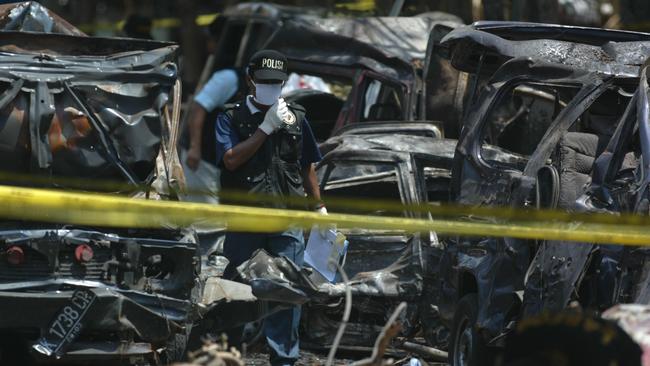
Thorp says he’ll never forget what Laing did for a boy on Quayle’s footy team who survived the bombing on what was his first ever trip outside of Perth.
“This young bloke said he was scared,” Thorp said.
“And Lainga was sitting there out on this step with his arm around him and he said ‘Oh, mate, we’re at the hotel down the road and there are cops down there. And if you’re feeling scared you can come and stay down there with us’.
“I’ve said it to him a hundred times: ‘I’ll love you ‘til the day I die because of that moment’. It’s hard to explain but it’s true.”
Laing adds: “I usually let Andy tell this story, because he cries and I laugh at him”.
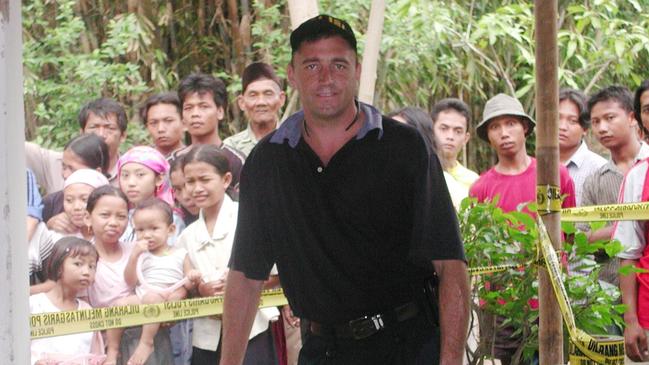
Now a senior inspector at the AFP, Laing says he has never been involved in anything as profound as their experience in Bali in 35 years of policing.
“Twenty years later we still talk about it like it was yesterday. But it’s not actually about Bali anymore,” he said.
“Out of adversity it’s 20 years of good, that’s how I look at it.”
Listen to the AFP’s new podcast Operation ALLIANCE: 2002 Bali Bombings
Laing and Quayle reconnected in Australia the year after the bombings at a barbecue in Perth and have seen each other and Thorp nearly every year since.
An annual tradition was born when Quayle and Laing travelled to Melbourne to watch the Sydney Swans take on the West Coast Eagles in the 2005 AFL Grand Final.
Laing says the rest was history: “We didn’t know it then, but that was the start of it”.
“We’re sitting here together 20 years later, and there’s this massive network that’s developed outside of the incident, with the football,” he said.
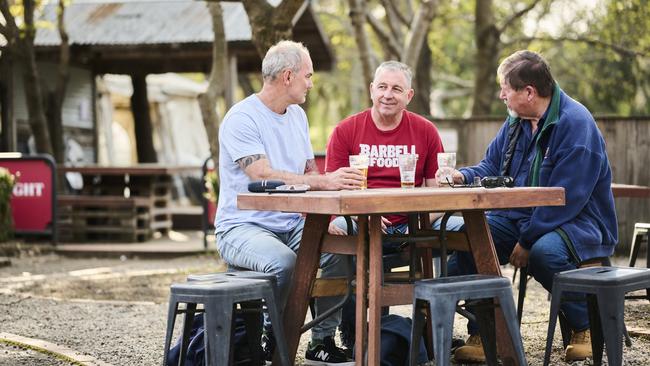
The three men have “all watched each others’ kids grow up” as well as supported each other at anniversaries and events to commemorate the bombings.
At a cleansing ceremony held at the Sari Club, Thorp and Laing arranged to have an AFP officer wear a Kingsley Cats jersey so the team could be represented there.
Quayle will never forget what happened in Bali but says he chooses to focus on “letting go of the hatred”.
“I think every day in my eyes is quite significant,” he said.
“I lost mates. But I think it’s more significant for the people that lost their sons and their daughters and the reflection for them.
“I’ve been really, really lucky.”



